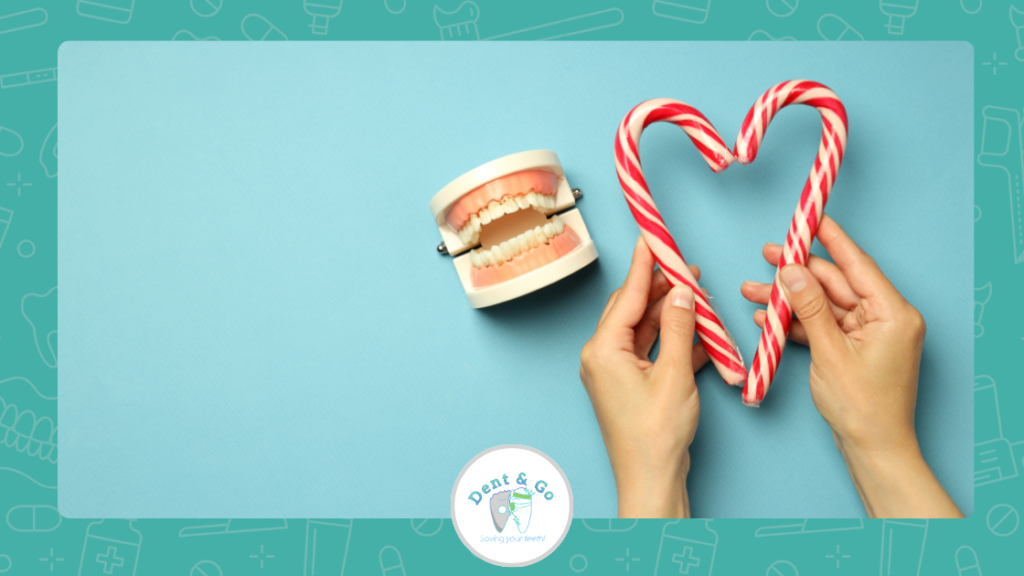Do you ever take a bite of your favourite dessert or sip a sugary drink, only to feel a sudden, sharp pain in your teeth? If so, you may be experiencing sugar sensitivity, a common issue that affects many people. While most people associate tooth sensitivity with hot or cold foods, sugar can also trigger discomfort, leaving you wondering what’s causing the problem.
In this blog, we’ll explore why your teeth might be sensitive to sugar, what it means for your oral health, and how you can manage and prevent it.
Why Are Your Teeth Sensitive to Sugar?
Tooth sensitivity to sugar is often a sign that something isn’t quite right with your enamel or gums. Here are some of the most common reasons why sugar might be causing you pain:
1. Enamel Erosion
Your tooth enamel is the hard outer layer that protects your teeth from decay and sensitivity. However, it can wear down over time due to acidic foods, aggressive brushing, or even natural ageing. When enamel weakens, the sensitive dentin underneath is exposed. This dentin contains tiny tubules that lead to the nerves inside your tooth, allowing sugar to reach them and cause pain.
2. Tooth Decay (Cavities)
When you consume high amounts of sugar, the bacteria in your mouth feed on it, producing acids that attack your enamel. Over time, this process, known as demineralisation, weakens the tooth’s outer layer and leads to cavities. According to actiononsugar.org, cavities expose the inner layers of the tooth, making them highly sensitive to sugary foods and drinks. The more sugar you consume, the more bacteria thrive, accelerating the cycle of decay and sensitivity.
3. Gum Recession
Gum recession occurs when the gum tissue pulls back from the teeth, exposing the roots. Unlike enamel, tooth roots don’t have a protective layer, so they are much more sensitive to external triggers, including sugar. Gum recession can be caused by gum disease, overbrushing, or genetics.
4. Cracked or Worn Fillings
If you have old dental fillings, they can wear down or crack over time. This can leave the inner layers of your tooth exposed, leading to pain when you consume sugar. If you notice sudden sensitivity in a tooth with a filling, it might be time for a dental check-up.
5. Dry Mouth (Reduced Saliva Production)
Saliva plays a crucial role in washing away food particles and neutralising acids in your mouth. If you suffer from dry mouth, sugar and acid can linger on your teeth for longer, increasing the likelihood of sensitivity and decay. Certain medications, dehydration, or medical conditions can contribute to a lack of saliva.
How to Manage and Prevent Sugar Sensitivity
If sugar is causing discomfort in your teeth, there are steps you can take to reduce sensitivity and protect your oral health.
1. Use a Sensitivity Toothpaste
A toothpaste designed for sensitive teeth can help block nerve signals, reducing pain when eating sugar. Look for products containing potassium nitrate or stannous fluoride, which help strengthen enamel and protect dentin.
2. Improve Your Oral Hygiene Routine
- Brush gently with a soft-bristled toothbrush to avoid further enamel wear or gum recession.
- Use fluoride toothpaste to strengthen enamel and protect against decay.
- Floss daily to remove plaque and food particles that can contribute to cavities.
3. Cut Down on Sugary and Acidic Foods
Frequent consumption of sugary and acidic foods can accelerate enamel erosion. Try to:
- Reduce sweets, fizzy drinks, fruit juices, and processed snacks.
- Rinse your mouth with water after consuming sugar to help wash away residue.
- Eat more calcium-rich foods like cheese and yoghurt to help remineralise enamel.
4. Stay Hydrated
Drinking plenty of water helps maintain saliva production, which is essential for neutralising acids and washing away sugar from your teeth. Chewing sugar-free gum can also help stimulate saliva flow.
5. Visit Your Dentist Regularly
If sugar sensitivity persists, book an appointment with your dentist. They can:
- Check for cavities or gum issues.
- Apply fluoride treatments to strengthen your teeth.
- Recommend professional solutions like dental bonding or sealants to protect exposed dentin.
Sensitive teeth can take the joy out of eating your favourite sweet treats, but the good news is that you don’t have to live with discomfort. By understanding the causes and taking steps to protect your teeth, you can reduce sensitivity and keep your smile strong.
If your teeth are sensitive to sugar, don’t ignore the signs, it may be an early warning of enamel erosion or tooth decay. Take action today by improving your oral care routine and consulting your dentist for professional advice.
Your teeth deserve to stay healthy and pain-free, so give them the care they need!

